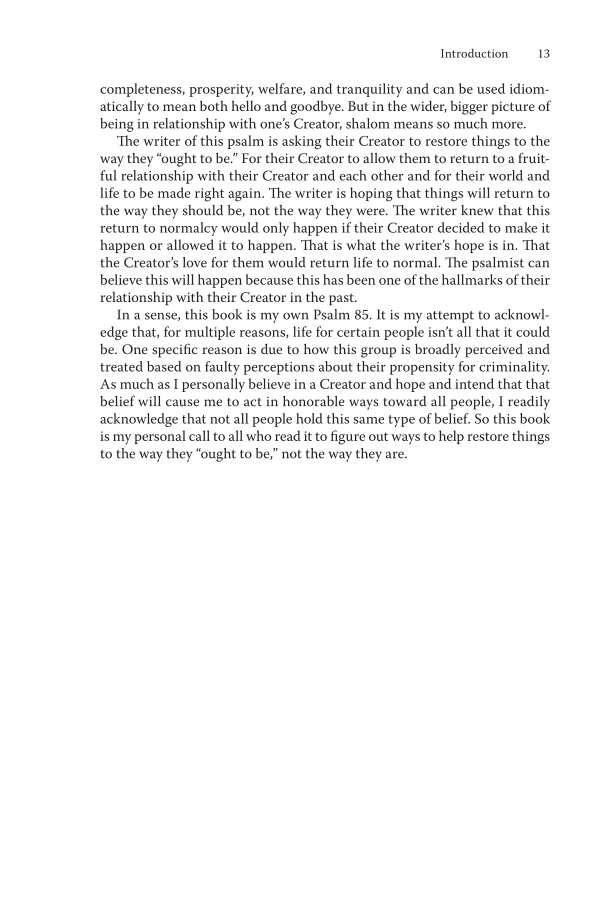Introduction 13 completeness, prosperity, welfare, and tranquility and can be used idiom- atically to mean both hello and goodbye. But in the wider, bigger picture of being in relationship with one’s Creator, shalom means so much more. The writer of this psalm is asking their Creator to restore things to the way they “ought to be.” For their Creator to allow them to return to a fruit- ful relationship with their Creator and each other and for their world and life to be made right again. The writer is hoping that things will return to the way they should be, not the way they were. The writer knew that this return to normalcy would only happen if their Creator decided to make it happen or allowed it to happen. That is what the writer’s hope is in. That the Creator’s love for them would return life to normal. The psalmist can believe this will happen because this has been one of the hallmarks of their relationship with their Creator in the past. In a sense, this book is my own Psalm 85. It is my attempt to acknowl- edge that, for multiple reasons, life for certain people isn’t all that it could be. One specific reason is due to how this group is broadly perceived and treated based on faulty perceptions about their propensity for criminality. As much as I personally believe in a Creator and hope and intend that that belief will cause me to act in honorable ways toward all people, I readily acknowledge that not all people hold this same type of belief. So this book is my personal call to all who read it to figure out ways to help restore things to the way they “ought to be,” not the way they are.
Document Details My Account Print multiple pages
Print
You have printed 0 times in the last 24 hours.
Your print count will reset on at .
You may print 0 more time(s) before then.
You may print a maximum of 0 pages at a time.

























































































































































